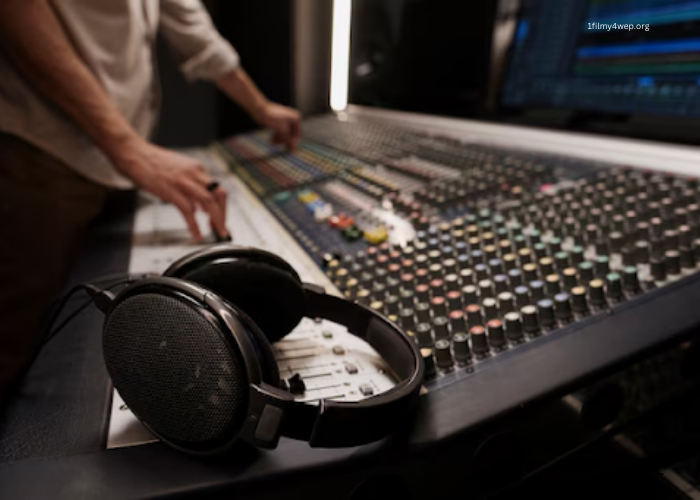Music is a universal language that connects people across cultures and emotions. It takes many forms, with live performances and studio recordings standing as two significant pillars in the industry. Each offers unique experiences, but which one truly captures the essence of music? This article explores the defining characteristics, advantages, and challenges of both mediums, aiming to uncover their impacts on artists and audiences alike.
Characteristics of Live Performances
Spontaneity and Energy
Live performances bring an unmatched sense of spontaneity and energy. The interaction between performers and their audience often leads to a dynamic and unpredictable atmosphere. Every performance is different, driven by the crowd’s mood and the musicians’ response.
Imperfections and Authenticity
Unlike studio recordings, live shows embrace imperfections. Mistakes, raw vocals, or instrumental slip-ups add a layer of authenticity, creating a genuine connection between the artist and the audience.
Audience Interaction
Real-time feedback from an audience is integral to live performances. Whether it’s applause, cheers, or singing along, this interaction elevates the musical experience and forms a communal bond.
Characteristics of Studio Recordings
Precision and Perfection
Studio recordings focus on delivering polished tracks. Artists can re-record sections, adjust tempos, and refine sounds to ensure perfection. This precision allows for the highest-quality output.
Creative Experimentation
Studio environments enable artists to explore various effects, layering techniques and sounds that may not be feasible in a live setting. This freedom encourages innovation and creativity. Additionally, get to learn more on sajfm website.
Consistency
A significant advantage of studio recordings is consistency. Listeners get the same experience every time they play a track, regardless of when or where it was recorded.
Advantages of Live Performances
Emotional Impact
Live performances often evoke stronger emotional responses compared to recorded tracks. The atmosphere, combined with the energy of the crowd, enhances the emotional connection to the music.
Unique Experience
No two live performances are ever the same. Each show is a one-of-a-kind event, offering fans an exclusive experience that cannot be replicated.
Visual and Social Elements
Live shows include the visual aspect of stage presence and choreography. These elements, combined with the shared excitement of the crowd, create a multi-sensory experience that goes beyond just listening to music.
Advantages of Studio Recordings
Sound Quality
Studio recordings deliver unparalleled sound quality. Advanced equipment and soundproofing ensure that every note, lyric, and beat is captured with clarity.
Artistic Control
Artists can shape their vision fully in the studio. From experimenting with arrangements to perfecting transitions, the studio provides a space for meticulous craftsmanship.
Accessibility
Studio recordings allow music to reach a global audience. Fans can listen anytime and anywhere, making music universally accessible.
Challenges of Live Performances
Unpredictability
Live shows are subject to unpredictability. Technical issues, equipment malfunctions, or unplanned disruptions can affect the performance.
Acoustic Variability
The quality of sound in live settings depends heavily on the venue’s acoustics. Poor sound systems or unfavorable acoustics can diminish the musical experience.
Physical and Mental Demands
Performing life requires immense stamina and mental focus. The pressure to deliver consistently excellent performances can be taxing for artists.
Challenges of Studio Recordings
Lack of Immediate Feedback
Unlike live shows, studio recordings lack the real-time feedback of an audience. This can make it difficult for artists to gauge the emotional impact of their music.
Potential Overproduction
The temptation to overproduce can strip recordings of their raw and organic essence. Excessive editing may lead to music that feels overly polished or detached.
Time and Financial Constraints
Studio time is expensive, and producing high-quality tracks requires significant investment in both time and money. This can limit opportunities for some artists.
Audience Perspectives
Preferences for Live Music
Some listeners favor live performances for their authenticity and emotional intensity. The shared experience of being in a crowd amplifies the joy of music.
Preferences for Studio Recordings
Others prefer studio recordings for their clarity and consistency. High-quality sound and the ability to listen repeatedly make studio tracks a favorite for many fans.
Impact of Technology
Streaming platforms and digital media have revolutionized music consumption. Live recordings and studio albums now coexist on the same platforms, giving audiences more choices than ever. Read more at https://sajfm.com/.
Conclusion
The debate between live performances and studio recordings highlights the diverse ways music can be experienced and appreciated. While live shows bring unparalleled energy and connection, studio recordings offer precision and accessibility. Ultimately, the “true essence” of music lies in the ears of the beholder, shaped by personal preferences and emotional resonance. By exploring both mediums, listeners can enjoy the best of what music has to offer.

